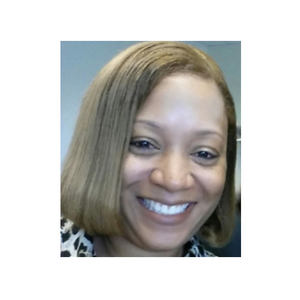Featured Guest, News and Support
The Second Time Around: Helpful Resources from my Journey to Passing the Masters exam

By: Tiffany Thompson, MSW, CSW
tthompson101974@gmail.com
In July of 2015, I graduated with an MSW degree from the Spalding University School of Social Work. After two challenging years in graduate school, I was eager to obtain a job in the field, specifically with youth in foster care, and their families.
I planned to pursue a CSW, LCSW, and somewhere along the line, a Ph.D. in Social Work. Just before graduation, I began sending out resumes and applying for entry level social work positions. After approximately two months of job searching with few interviews and no offers, I took a position with my alma mater Spalding in the School of Liberal Studies.
After securing full-time employment, I decided to prepare a strategy for studying for the Masters exam. Since my cohort missed out on the review course due to staffing changes, I contacted my former practicum supervisor, to utilize her study preparation materials. I was so thankful that she shared this information with me, I was excited to sink my teeth into studying. However, some of the information she gave me was outdated-prior to the DSM-V. I chose to research more current resources and found a variety of free information on the internet.
Being self-motivated, I did not seek out a study partner or an online group discussion to prepare for the exam. If you prefer to study in groups or pairs, this is a great option and there are many free resources that support this format. I chose to create a study plan that fit my needs and that I could implement at least 5 days a week for approximately 2 hours or more hours per session depending on my work load.
I compiled a study workbook that included information covering the subjects outlined on the Association of Social Work Boards (ASWB) examination program. Also included are: a study guide from Social Work Test Prep (SWTP) and a study guide from the Association for Advanced Training in the Behavioral Sciences (AATBS). I also assembled practice questions from multiple websites such as: dynamicpath.com and practicequiz.com.
After I placed the study prep materials into a large binder with clear sheet protectors for each item, I applied the techniques of metacognition and the Survey Question Read Recite Record Review Reflect [SQ3R (4R or 5R)] reading method to digest the information. Saundra McGuire, Ph. D (2016), defined metacognition as the capacity to: utilize critical thinking skills, recognition of solution finding skills, seeking understanding vs. memorization, discernment of strengths and weaknesses, and identify expertise vs. areas for growth. McGuire (2016) suggested the use of the SQ3R (4R or 5R) method as an evidence based strategy for learning.
McGuire (2016) outlined the following seven steps for the SQ3R (4R or 5R) as follows:
1. Survey-observe the introduction, synopsis, and any unfamiliar or highlighted terms
2. Question- formulate queries that you believe the material will cover
3. Read-in small sections
4. Recite- sum up what the paragraph is saying in your own words
5. Record or Write-make comments in the margins to remember key points
6. Review-go over what you have learned to see if it makes logical sense
7. Reflect-consider other view points and consider any questions you may have about the topic
I began studying the Masters exam prep materials during free periods for at least 5 days per week for about 6 months. Then I took the exam for the first time in December of 2015 and missed passing the exam by 2 points. I was devastated after all the hard work and money I put into this process. I was so, close and yet so far away.
I found out from some of my cohort members that they had similar experiences with taking the Masters exam. The Association of Social Work Boards (ASWB) indicates the pass rates for 2015 vary widely across exam levels. The following chart from ASWB shows these numbers:
Pass rates
In 2015, the ASWB noted that these statistics reflected initial social work licensing exam attempts in the entire ASWB member area. These figures are indicative of cohorts of greater than 200 contenders.
Exam Total number of exams 2015 pass rate
Associate 776 67.4%
Bachelors 4,059 77.5%
Masters 15,145 80.5%
Advanced Generalist 196 64.8%
Clinical 12,981 76.0%
Source: Pass Rates ASWB
The above results show that social work licensing exams are challenging for many candidates.
After processing my failure, I spent the next 10 months preparing my finances and my brain for a rematch. Along with reviewing my workbook, I used the Association of Social Work Boards Masters of Social Work exam prep pocket prep application (ASWB MSW Exam Prep).
The application, for use on iPhone or android is free to download onto your device. The app provides up to 500 practice questions over 4 subject areas and is very user friendly. You can also get a “question of the day”, unlimited practice exams, a record of your practice history, thorough answer explanations and you can set a reminder to practice and/or set your exam date.
I consistently scored an average of 96% on my practice exams using the app, so I felt very confident taking the test a second time. I looked at some other apps, but they were not as helpful or user friendly as this one.
On October 28, 2016, I finally passed the exam. I was so relieved. Now I can start preparing for the Clinical exam (LCSW). I will approach the next exam in the same manner-saving up and studying on a regular schedule until I am ready to face the challenge. I encourage everyone who has attempted or has yet to take the Masters exam that it is doable. You just need to find a study method that works for your individual needs-breathe-and pass the exam.
I suggest the following game plan:
1. Register and schedule your exam by contacting your local state board of social work or the ASWB
2. If you have test-taking anxiety, learn to ease the stress by applying self-care and positive self-talk. Try the tips in this new book The A-to-Z Self-Care Handbook for Social Workers and Other Helping Professionals. I wrote the chapter entitled “Time: More than Just Managing.
3. Consider the wealth of free study prep materials from the following resources:
• Businessballs
• Dynamic Path
• Inspired Consulting Group
• The National Association of Social Workers (NASW)
• Pinterest and type MSW study prep in the search box
• Therapist Development Center: social work exam prep
• Social Work Test Prep (SWTP)
• Social Work Theories charts from WordPress.com
• Review videos from Dr. Jay Memmott, Chair and Associate Professor of Social Work at the University of South Dakota
4. Try exercising metacognition and the Survey Question Read Recite Record Review Reflect [SQ3R (4R or 5R)] studying technique to learn the information covered on the exam-it greatly elevated my level of reading comprehension
5. Breathe and take the exam. Take it until you pass it!
I did it, and you can too!
 Tiffany Thompson earned an MSW from Spalding University, Louisville, Kentucky. She is a published author who is passionate about foster care, women’s rights, education, and social justice. Fond of volunteering, she is an educational support tutor for the “Everyone Reads” program.
Tiffany Thompson earned an MSW from Spalding University, Louisville, Kentucky. She is a published author who is passionate about foster care, women’s rights, education, and social justice. Fond of volunteering, she is an educational support tutor for the “Everyone Reads” program.
